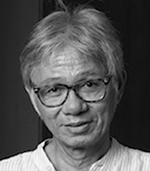

If there’s one picture that defines these times for me it is that of a man, well past middle age – or probably only prematurely aged by privation – moaning his fate. He came on television as an incidental news subject in the first days of the mass quarantines from the coronavirus pandemic.
Prevented making his marginal daily living as a tricycle driver, he protested, broken-voiced from fighting back tears: It is hard to be poor. By its nuance, the vernacular in which he actually spoke captured the full depth of his pain:
“Ang hirap nang mahirap.”
It is no consolation to him that, having no regard for income class, this pandemic works as an equalizing phenomenon. That, in fact, is the cruelest case of insult added to injury; that’s rubbing salt on the deep, long-festering wound this nation’s poor have been suffering as a distinctly disadvantaged lot.
The insults go on. These poor are categorized as an income class. If they make any income at all, surely it is nothing decent enough to make an income class of them.
Making up around a quarter (27 million) of the population, they are delineated from the better-off by a poverty line periodically adjusted to what the peso can buy at the moment in bare essentials. It is not seldom suspected that, poverty being an emotive issue, the government is careful to hold down the number below the poverty line to certain levels — indeed, the number has hovered around 25 percent over the years.
This administration was itself roundly ridiculed for a patently absurd minimum monthly sum it said a family of 5 could live by – P10,000, which comes to about P67 a day for each family member, which did not, and still does not, buy a meal. The economic authorities came back quickly with a number enlarged 4 times.
Now comes this pandemic to throw the specter of poverty in the face of government and society. Our archetypal tricycle driver’s meek protest has since given way to clamorous defiance. Many of his fellows are breaking out of lockdown to look for any living they can find out there. They prefer death by virus to the ultimate indignity of dying of hunger, “open-eyed,” they say.
“‘Di baleng ma-virus kesa mamatay sa gutom – na dilat!”
If anything, the pandemic seems working as a conscience stirrer. Civic and religious groups were prompt to step up; they have not stopped collecting charities for the poor, and they are being generously obliged. City and town mayors did not wait for instructions or advice from on high; on their own initiatives, they have realigned their budgets to prioritize sustenance for their locked-down constituents, the poor among them especially.
And just as well. The national government has been, for all its resources, slow to respond. It had P4 trillion to spend for the year, and the year is not even one quarter out. Of that, P16 billion pesos has been allotted for disasters and P13 billion precisely for general contingencies. The President himself has been given P2.5 billion and his entire executive department P4.5 billion for “intelligence,” an amorphous item open to loose spending and accounting.
At the end of last month Congress gave his government P275 billion for cash relief to citizens impoverished by the pandemic. Corporations and corporate groups, by one list alone, are shown to have contributed P7 billion, presumably in cash, for his government to preside over – he has specifically instructed all contributors to course their aid through his government. But how trustworthy or efficient or conscientious, really, is this government as trustee of its people’s very lives?
First off, how can the nation feel protected at all from the pandemic when the chiefs of two Cabinet offices mainly involved in the campaign against it (the Department of the Interior and Local Government and the Department of Social Welfare and Development) and the chief implementer himself of the campaign are all former military generals, men trained in, at best, subordinate disciplines?
Neither economist nor business administrator, the interior and local government secretary was among the first to raise the prospect of opening the economy. On his similarly impertinent part, the campaign implementer, neither medical doctor nor hospital administrator, joined the 12 supposed pandemic experts from China, hosting them and meeting with them, on what can only be presumed to be profoundly technical issues, and coming away basking in their praise of the Philippine effort against the virus – a virus their own country happens to have bred and given to the rest of the world.
The social welfare and development secretary had the better sense to make himself scarce and let his assistants appear and speak for him. His department is now swamped with complaints of inadequate or undistributed aid.
The health secretary himself, though a physician, has had little practice and none at all in the relevant expertise of public health. He seems better known as a pharmaceutical businessman and a landlord.
So, who can say how we’re doing in the fight against this global pandemic on our own front?
Well, things definitely cannot be better if the streets are crawling with police and troops and trucks mounted with machine guns.
Things cannot be better if an armed policeman can just barge in on you in your own home and order you to get out of the sun in your own yard and stay locked in, screaming at you without a protective mask, spewing forth such potentially deadly particles as everyone is precisely warned to avoid catching.
Things cannot be better if a policeman can just come at you with a gun on the slightest suspicion and shoot you dead.
Things cannot be better if you have a President who is so aberrantly obsessed with martial law he thinks it can defeat anything – even a pandemic. – Rappler.com